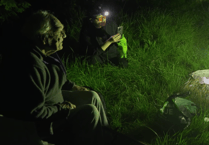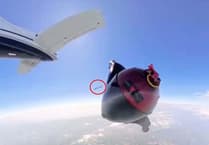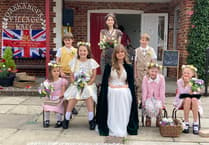A POPULAR bird sanctuary near Farnham is continuing to do its bit to help the UK’s Great Bustard population thrive.
And this year has been no exception with the hot summer proving ideal for the bustard chicks, four of which have been fledged in the wild in Salisbury, Wiltshire, with the promise of more to come.
And Birdworld has played a key part in the development of the Great Bustards.
It is known that young female Great Bustards rarely manage to rear more than one chick even if they have up to three eggs. The Great Bustard Group was able to visit nests when the female was off feeding and swap some of the eggs for wooden dummies. This was done under the provisions of a licence from Natural England. The female then returns to the nest and continues incubating.
The eggs taken are kept at incubation temperature and are transported to Birdworld where experts continue the incubation and hatching of the eggs.
The chicks are then brought to the Great Bustard Group centre on Salisbury Plain and reared until they are ready for release.
The four hand-reared chicks have been released this week.
The nest management trial has been judged as successful by the group and will be repeated in the future.
Birdworld has supported the Great Bustard Group for many years and its experts have successfully undertaken the incubation of all the Great Bustard eggs collected under licence by the group in Spain from 2014 to 2017.
This year sees the UK Great Bustard population exceed 70 birds and is the first year that eggs laid in the wild in the UK have been incubated at Birdworld.
David Waters, executive officer at The Great Bustard Group, said: “It is very exciting the see the UK’s Great Bustard population grow without sourcing any eggs from another population. The population is now self-sustaining, but we will accelerate the population growth where we can by managing some of the wild nests.”
Duncan Bolton, curator at Birdworld, added: “Birdworld has been happy to support the UK Great Bustard reintroduction programme over a number of years, and especially utilizing our skills and expertise with the hatching of eggs harvested from Spain since 2014.
“This continued with the incubation of four eggs rescued from nests in Wiltshire this year, laid by females hatched at Birdworld in 2014 and 2015.
“It is very rewarding for all our team to think that this species can now thrive in the English countryside with minimal further intervention.”
Birdworld celebrates its 50th anniversary this year and a spokesman for the Great Bustard Group said it was grateful to the staff at Birdworld for the “tremendous help” they have given the Great Bustard project over the years.




